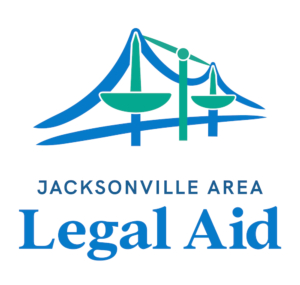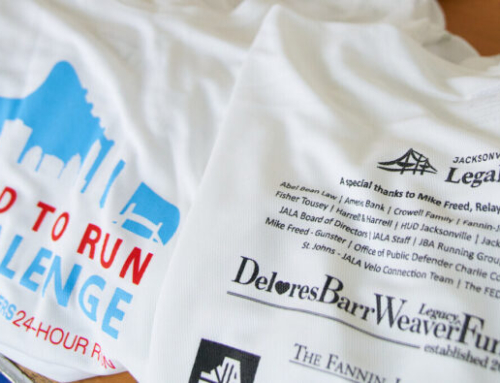
The COVID-19 pandemic has led to a doubling of requests for help from domestic violence survivors, with Jacksonville Area Legal Aid’s staff handling nearly 300 domestic violence intakes through early December 2020, compared to 140 in all of 2019.
“There has definitely been an increase in survivors requesting family law assistance since the pandemic,” said Michelle Broyles, division chief of JALA’s Family Law & Victim Advocacy Unit. “On a normal day, survivors live in fear, but when there is a lock down, ‘safe at home’ is not safe for everyone. Lockdowns force survivors to stay in close quarters with their abusers.”
Broyles said it’s also more difficult for survivors to reach out for help when they have nowhere to go to have a private phone conversation with a victim advocate, shelter, help center, police, or an attorney. She’s even heard an abuser in the background demanding to know who was on the other end of the line, which required quick thinking on her part and that of the caller.
“With businesses closing, many people are left without an income and forced to stay for financial reasons. It’s so much easier for abusers to isolate survivors when everyone is encouraged to stay home or when businesses are closed, not to mention the fear of getting sick,” Broyles said. “Recessions also lead to increased incidences of domestic violence. Fights about finances or tensions regarding low funds lead to physical altercations.”
Broyles said JALA has also seen an increase in clients disclosing sexual assaults along with physical violence.
“The DV shelters have adjusted to help the population as much as possible,” Broyles said. “For example, Hubbard House has a text hotline now so people who are unable to step away to make a call can send a text to receive information on how to get to safety.”
While JALA can’t provide full representation to everyone in need of assistance, Broyles said the staff and attorneys do their best to offer some form of help to everyone, whether it be advice and counsel, referral to other organizations, document preparation, limited representation for a court event, or full representation.
“We meet every Friday to discuss the intakes for the week and prioritize the needs of each so that we can handle the most cases in the most appropriate manner that our time and resources allow,” Broyles said.
“My goal as the supervisor is to balance the need of the survivors and the mental well-being of the attorneys in the Family Law Unit. We can only be helpful if we are healthy, and there is a high risk of vicarious trauma in the work we do.”
Broyles has virtual meetings weekly with the attorneys and staff from the Family Law & Victim Advocacy Unit. Part of the meetings is a “weekly trauma dump” as they work to support each other.
“Although we are working individually from home, we still work as a team and stay in regular contact through chat and video conferencing platforms,” Broyles said.
When survivors have other issues, such as being threatened with eviction, the Family Law & Victim Advocacy Unit collaborates with other JALA units, such as when a tenant is being evicted due to repeated police activity related to the domestic violence.
Hubbard House CEO Gail Patin said the legal services JALA provides are crucial to helping women escape the cycle of violence.
“Legal aid plays a vital role in helping survivors achieve desirable outcomes,” Patin said. “Without it, many of those we serve would struggle to move forward. JALA provides a legal way to end abusive relationships, ensure safety for their children through the courts, and move forward more safely.”
While grant funding helps support JALA’s domestic violence work, the grants are never guaranteed and will never be enough to meet the demand, especially as long as the pandemic is increasing family pressures at home and keeping survivors isolated.
“We will never say no to additional resources,” Broyles said.



